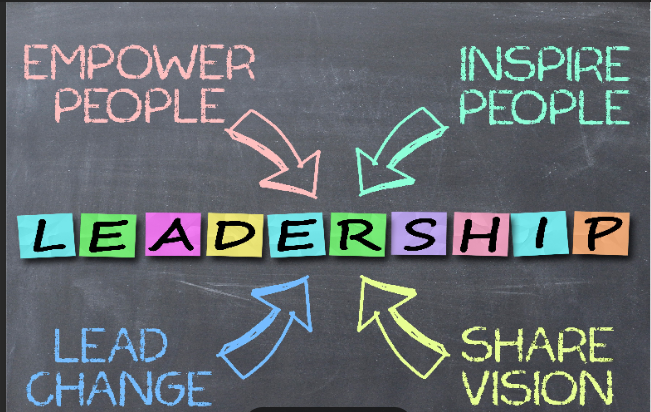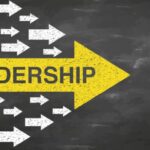In today’s fast-paced and ever-evolving business landscape, the traditional leadership playbook is no longer enough to guarantee success. The 21st century workplace is characterized by rapid change, technological disruption, and a diverse, multi-generational workforce. To thrive in this environment, leaders must be agile, adaptable, and equipped with a unique set of skills that enable them to inspire, motivate, and empower their teams to achieve greatness.
Gone are the days of command-and-control leadership; instead, leaders must be collaborative, empathetic, and visionary. In this post, we’ll explore the 10 essential skills that every leader needs to succeed in the 21st century workplace, from emotional intelligence and strategic thinking to digital literacy and cultural competence. Whether you’re a seasoned executive or an aspiring leader, these skills will help you stay ahead of the curve and drive success in your organization.
Introduction to Leadership 2.0
Welcome to the era of Leadership 2.0, where the rules of the game have changed and the stakes are higher than ever. The 21st-century workplace is a dynamic, fast-paced, and ever-evolving landscape that demands a new breed of leaders who can adapt, innovate, and thrive in the face of uncertainty. Gone are the days of traditional, top-down leadership, where command and control were the only currencies that mattered. Today, leaders must be agile, empathetic, and visionary, with a deep understanding of the complexities of the modern workplace.
In this new era, leaders are no longer just managers, but catalysts for change, driving growth, innovation, and collaboration. They must be able to navigate the complexities of a globalized, digital, and interconnected world, where the pace of change is accelerating at an exponential rate. To succeed, leaders must possess a unique set of skills that enable them to stay ahead of the curve, inspire and motivate their teams, and drive results in a rapidly shifting landscape.
In this blog post, we’ll explore the 10 essential skills that every leader needs to thrive in the 21st-century workplace. From emotional intelligence to digital literacy, and from strategic thinking to cultural competence, we’ll delve into the key competencies that will set you apart as a leader and help you achieve success in today’s fast-paced, hyper-connected world.
The Changing Landscape of the 21st Century Workplace
The 21st century workplace is a vastly different landscape from the traditional, hierarchical organizations of the past. The rise of the digital era has brought about a seismic shift in the way we work, communicate, and interact with each other. Gone are the days of top-down management, rigid structures, and siloed departments. Today’s workplace is a dynamic, fast-paced, and interconnected environment that demands a new kind of leadership.
With the proliferation of technology, the traditional boundaries of time and space have been erased, and the modern workplace is now a global, virtual, and always-on entity. The internet, social media, and mobile devices have created an era of unprecedented connectivity, where information is readily available at our fingertips, and collaboration can happen across geographical distances in real-time.
This new landscape has also given rise to a more diverse, distributed, and decentralized workforce, where employees are no longer confined to traditional office spaces. The gig economy, remote work, and freelancing have become the norm, and leaders must now navigate this complex web of relationships, networks, and ecosystems to succeed.
In this brave new world, leaders must be adaptable, agile, and able to navigate ambiguity and uncertainty. They must be able to inspire and motivate a diverse range of employees, empower them to take ownership and make decisions, and foster a culture of innovation, creativity, and continuous learning. The 21st century workplace demands a new kind of leadership – one that is collaborative, inclusive, and able to harness the collective genius of the organization to drive success.
The Top 10 Essential Skills for 21st Century Leaders
As we navigate the complexities of the 21st century workplace, it’s clear that the traditional leadership playbook is no longer sufficient. The modern leader must be agile, adaptable, and equipped with a unique set of skills that enable them to thrive in a rapidly changing environment. So, what are the essential skills that separate the leaders from the laggards? After researching and analyzing the most effective leaders of today, we’ve identified the top 10 essential skills that every 21st century leader must possess. From cultivating a growth mindset to leveraging digital literacy, these skills are the key to unlocking success in the modern workplace. They are the foundation upon which leaders can build trust, inspire innovation, and drive results in a world that is increasingly VUCA volatile, uncertain, complex, and ambiguous. In the following sections, we’ll dive deeper into each of these essential skills, exploring what they mean, why they’re important, and how leaders can develop them to achieve greatness.
Skill #1: Adaptability and Emotional Intelligence
In today’s fast-paced and ever-changing business landscape, the ability to adapt quickly and navigate complex emotions is crucial for leaders to thrive. The first essential skill of Leadership 2.0 is the dynamic duo of adaptability and emotional intelligence. These two interconnected skills form the foundation of a successful leader, enabling them to navigate the turbulence of modern workplaces with ease and agility.
Adaptability is the capacity to pivot in response to shifting circumstances, whether it’s a sudden change in market trends, a unexpected departure of a key team member, or a sudden pivot in company strategy. It’s the ability to think on your feet, to be open to new ideas, and to reassess priorities in real-time. In an era of rapid technological disruption, adaptability is no longer a nice-to-have, but a must-have for leaders who want to stay ahead of the curve.
Emotional intelligence, on the other hand, is the ability to recognize and understand emotions in yourself and others. It’s the capacity to empathize with team members, to manage conflict, and to build strong relationships with stakeholders. Emotional intelligence is what sets exceptional leaders apart from mere managers, enabling them to create a culture of trust, motivation, and collaboration.
When combined, adaptability and emotional intelligence form a powerful synergy that enables leaders to navigate even the most turbulent of waters with ease. By cultivating these skills, leaders can build resilience, foster innovation, and drive success in today’s fast-paced and ever-changing business landscape.
Skill #2: Digital Literacy and Data-Driven Decision Making
In today’s fast-paced, technology-driven business landscape, the ability to navigate and make sense of the digital world is no longer a nice-to-have, but a must-have for leaders. Digital literacy is about more than just being proficient in Microsoft Office or having a social media presence. It’s about understanding the intricacies of digital platforms, tools, and systems, and being able to leverage them to drive business outcomes. It’s about being able to analyze complex data sets, identify patterns and trends, and use that information to inform strategic decisions. In short, it’s about being able to turn data into actionable insights that drive business growth.
In the 21st century workplace, leaders who are digitally literate are better equipped to stay ahead of the curve, anticipate changes in the market, and make data-driven decisions that drive real results. They’re able to harness the power of technology to streamline processes, improve efficiency, and unlock new opportunities for innovation and growth. Without digital literacy, leaders risk being left behind, stuck in a world of outdated thinking and manual processes. By developing this essential skill, leaders can unlock the full potential of their organization and thrive in the modern workplace.
Skill #3: Effective Communication and Storytelling
In today’s fast-paced, digitally-driven workplace, effective communication and storytelling are more crucial than ever. As a leader, you’re not just conveying information, you’re inspiring action, building trust, and fostering collaboration. But with the constant noise of emails, meetings, and social media, it’s easy for your message to get lost in the shuffle.
That’s why mastering the art of storytelling is essential. Storytelling has the power to engage, motivate, and memorableize your message in a way that facts and figures alone cannot. When you share a compelling story, you’re not just conveying information, you’re creating an emotional connection with your audience. You’re painting a picture that resonates, inspires, and motivates them to take action.
Effective communication and storytelling are about more than just conveying information; they’re about building relationships, establishing trust, and driving results. As a leader, it’s your responsibility to craft a narrative that inspires and motivates your team, stakeholders, and customers. By doing so, you’ll be able to articulate your vision, build consensus, and drive meaningful change in your organization. In the 21st century workplace, the ability to communicate effectively and tell compelling stories is no longer a nice-to-have, it’s a must-have skill for leaders who want to thrive.
Skill #4: Collaborative Leadership and Building High-Performing Teams
In today’s fast-paced, interconnected business landscape, the traditional “command-and-control” style of leadership is no longer effective. Instead, the most successful leaders are those who can foster a culture of collaboration, empowerment, and collective ownership. Collaborative leadership is about creating an environment where diverse perspectives, skills, and experiences come together to drive innovation, creativity, and results.
At its core, collaborative leadership is about building high-performing teams that are motivated, engaged, and equipped to tackle complex challenges. It requires a leader who is willing to share power, listen actively, and facilitate open communication. By doing so, they can unlock the full potential of their team members, foster a sense of accountability, and drive outcomes that are far greater than the sum of their individual contributions.
In a collaborative leadership model, leaders act as facilitators, coaches, and enablers, rather than dictators. They focus on building trust, encouraging experimentation, and promoting continuous learning and improvement. They also recognize that leadership is not about having all the answers, but about creating an environment where the best ideas can emerge and thrive. By mastering the skill of collaborative leadership, you’ll be able to build teams that are agile, resilient, and capable of achieving remarkable results in the face of uncertainty and change.
Skill #5: Strategic Thinking and Problem-Solving
In today’s fast-paced and ever-changing business landscape, the ability to think strategically and solve complex problems is no longer a luxury, but a necessity. As a leader, you must be able to navigate the complexities of your organization, identify opportunities for growth, and develop innovative solutions to stay ahead of the competition. This requires a unique blend of analytical thinking, creativity, and vision.
Effective strategic thinkers and problem-solvers are able to cut through the noise, identify the root causes of problems, and develop solutions that are both practical and effective. They are able to balance short-term needs with long-term goals, and make informed decisions that drive results. In a world where disruption is the norm, leaders who possess this skill are able to stay one step ahead of the curve, anticipating challenges and opportunities before they arise.
By developing your strategic thinking and problem-solving skills, you’ll be able to tackle even the most daunting challenges with confidence, make informed decisions that drive results, and inspire your team to do the same. In short, you’ll be able to lead with clarity, purpose, and direction, and thrive in the 21st century workplace.
Skill #6: Cultural Competence and Inclusive Leadership
In today’s diverse and globalized workplace, cultural competence and inclusive leadership are no longer just nice-to-haves, but must-haves for effective leaders. As a leader, you’re not only responsible for driving business results, but also for creating an environment where everyone feels valued, respected, and empowered to contribute. This means being able to understand and appreciate the differences that make your team members unique, and leveraging those differences to drive innovation and growth.
Cultural competence is about more than just being aware of cultural differences – it’s about being able to adapt your leadership style to meet the needs of a diverse team. It’s about being able to communicate effectively with team members from different cultural backgrounds, and being able to navigate the nuances of language, customs, and values that can sometimes lead to misunderstandings.
Inclusive leadership takes it a step further by actively seeking out and celebrating diverse perspectives, and creating opportunities for everyone to grow and develop. It’s about recognizing that everyone has a unique experience and perspective to bring to the table, and being able to create a sense of belonging and connection among team members. By developing your cultural competence and inclusive leadership skills, you’ll be able to unlock the full potential of your team, and drive business results that are truly exceptional.
Skill #7: Agility and Continuous Learning
In today’s fast-paced, ever-evolving business landscape, agility and continuous learning are no longer nice-to-haves, but must-haves for leaders who want to stay ahead of the curve. The ability to adapt quickly to changing circumstances, pivot when necessary, and continually update your skills and knowledge is essential.
In an era where technological advancements are happening at an unprecedented rate, leaders who fail to stay current will find themselves left behind. The half-life of skills is shorter than ever, and what was relevant yesterday may be obsolete tomorrow. To thrive, leaders must be committed to ongoing learning, seeking out new information, and applying it in innovative ways to drive growth and improvement.
Agility is not just about reacting to change, but also about anticipating and leading it. It requires a mindset that is open, curious, and receptive to new ideas and perspectives. Leaders who possess this skill are able to navigate uncertainty with ease, make informed decisions quickly, and inspire their teams to do the same. By embracing agility and continuous learning, leaders can stay ahead of the competition, drive innovation, and create a culture of excellence that sets their organization apart from the rest.
Skill #8: Empathy and Coaching
In today’s fast-paced and ever-changing work environment, leaders can no longer afford to simply dictate orders and expect results. Instead, they must be able to tap into the unique strengths, weaknesses, and motivations of their team members. This is where empathy and coaching come into play. Empathetic leaders are able to put themselves in their team members’ shoes, understanding their concerns, fears, and aspirations. They are able to create a safe and supportive environment where individuals feel heard, valued, and empowered to take ownership of their work. By combining empathy with coaching, leaders can help their team members unlock their full potential, overcome obstacles, and achieve their goals. This, in turn, leads to increased job satisfaction, reduced turnover, and improved overall performance. In essence, empathetic leaders who coach their team members are able to build a loyal and high-performing team that is capable of achieving remarkable results.
Skill #9: Innovation and Risk-Taking
In today’s fast-paced and ever-changing business landscape, the ability to innovate and take calculated risks is crucial for leaders who want to stay ahead of the curve. The traditional approach of playing it safe and sticking to what’s familiar is no longer sufficient to drive growth and success. Instead, leaders must be willing to challenge the status quo, experiment with new ideas, and take bold action to propel their organizations forward.
Innovation and risk-taking are not about being reckless or impulsive, but about being intentional and strategic in your approach. It’s about creating a culture that encourages experimentation, learning from failures, and continuously iterating and improving. This requires a mindset shift from “playing it safe” to “playing to win,” where leaders are willing to take calculated risks to achieve breakthrough results.
By embracing innovation and risk-taking, leaders can unlock new opportunities, drive innovation, and stay ahead of the competition. They can create a culture that is agile, adaptable, and responsive to changing market conditions, and that is capable of driving growth and success in the 21st century workplace.
Skill #10: Global Perspective and Cultural Awareness
In today’s interconnected world, leaders who possess a global perspective and cultural awareness are better equipped to navigate the complexities of a multicultural workforce and a rapidly shifting global market. The 21st-century workplace is a melting pot of diverse cultures, backgrounds, and perspectives, and leaders who can effectively bridge these differences are more likely to succeed.
Having a global perspective means being able to see beyond the boundaries of your own organization, industry, and even country. It involves understanding the broader economic, social, and political trends that shape the business landscape. This skill enables leaders to make informed decisions that take into account the needs of a diverse customer base, anticipate emerging opportunities, and mitigate risks.
Cultural awareness, on the other hand, is about recognizing and appreciating the unique values, customs, and beliefs that shape the behavior of individuals from different cultural backgrounds. It’s about being sensitive to the nuances of communication, avoiding unintentional biases, and creating an inclusive work environment that fosters collaboration and innovation.
Together, a global perspective and cultural awareness enable leaders to build strong relationships with diverse stakeholders, negotiate effectively across cultures, and make informed decisions that drive business success. In the 21st-century workplace, these skills are no longer a nice-to-have, but a must-have for leaders who want to stay ahead of the curve.
Conclusion: Thriving as a Leader in the 21st Century Workplace
As we conclude our journey through the 10 essential skills required to thrive as a leader in the 21st century workplace, it’s clear that the landscape of leadership has undergone a profound transformation. Gone are the days of command-and-control, top-down management, and rigid hierarchies. Today’s leaders must be agile, adaptable, and willing to evolve with the rapidly changing needs of their organizations and the world at large.
The 10 skills we’ve explored – from emotional intelligence and digital literacy to cultural competence and strategic thinking – are not just nice-to-haves, but must-haves for leaders who want to stay ahead of the curve. They are the keys to unlocking the full potential of your team, driving innovation, and building a culture of trust, collaboration, and continuous learning.
As you embark on your own leadership journey, remember that the true test of leadership lies not in the titles or the trappings of power, but in the ability to inspire, empower, and bring out the best in others. It’s about creating a workplace culture that is inclusive, diverse, and equitable, where everyone has the opportunity to thrive and grow.
By embracing these 10 essential skills, you’ll be well-equipped to navigate the complexities of the 21st century workplace, and to build a legacy that will inspire future generations of leaders. So, take the first step today, and start building the leadership skills that will take you and your organization to new heights.
As we conclude our journey through the 10 essential skills required to thrive in the 21st century workplace, we hope you’re left feeling empowered and equipped to take your leadership to the next level. The modern workplace is a dynamic and ever-changing landscape, and it’s only the leaders who are adaptable, innovative, and compassionate who will truly succeed. By incorporating these 10 essential skills into your daily practice, you’ll be well on your way to becoming a leader who inspires, motivates, and drives results. Remember, leadership is not just about title or position, it’s about the impact you have on those around you. So, go out there and lead with purpose, passion, and a commitment to excellence!












About The Author
InnoValeur
Conseil, intégration, et support sur SAP